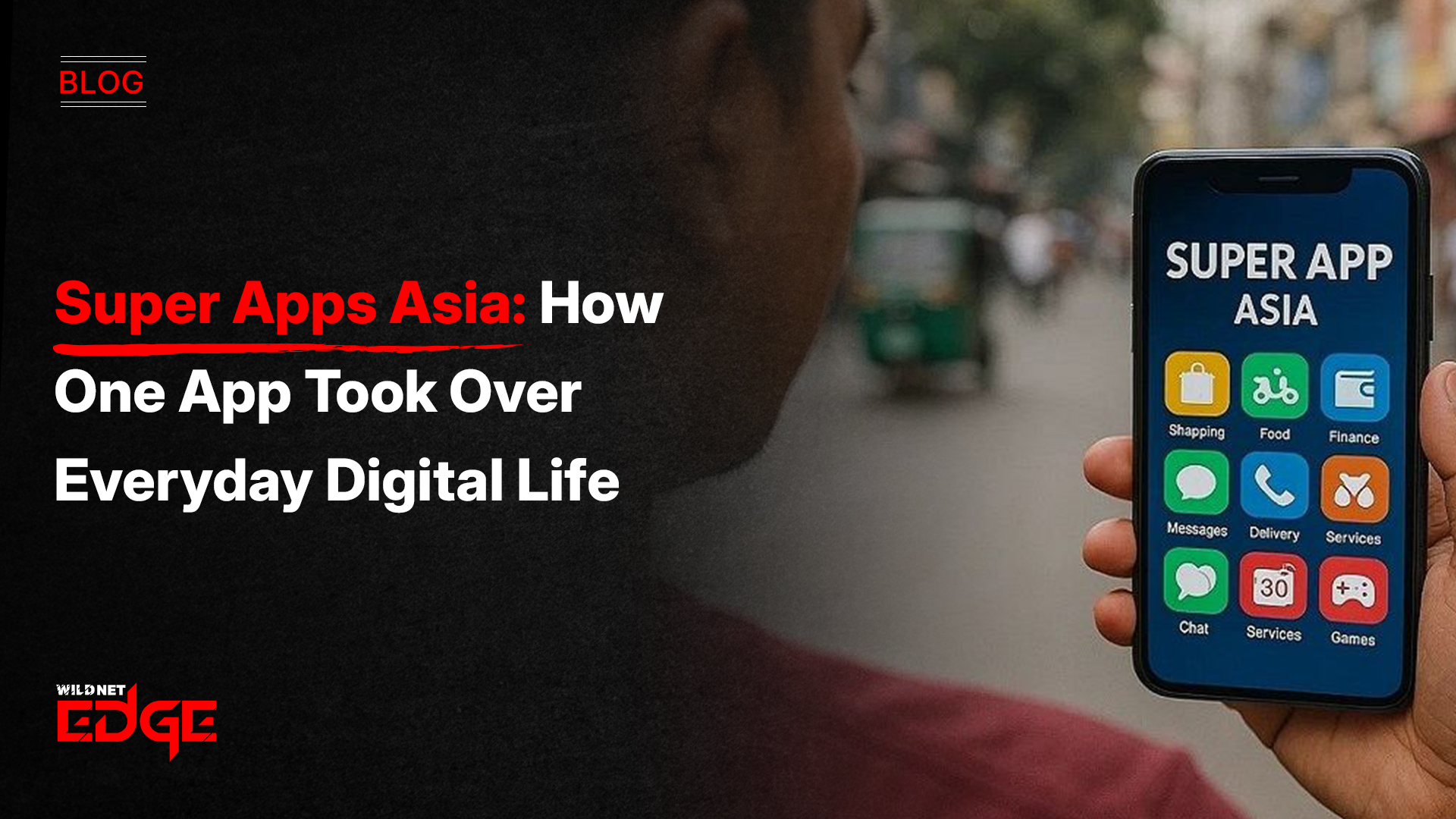Are you worried about data security breaches in your ERP systems? The escalating threats to data integrity can be daunting for businesses of all sizes. Traditional Enterprise Resource Planning (ERP) systems often suffer from vulnerabilities that can be exploited, leading to significant financial and reputational losses. Enter blockchain-based ERP software development. This innovative approach not only enhances security but also streamlines processes, making operations more efficient. Have you considered the advantages of integrating blockchain technology into your ERP systems? By leveraging decentralized technology, businesses can ensure data security while also improving transparency and trust among stakeholders. In this blog, you’ll explore how blockchain can redefine your ERP landscape, providing secure and reliable solutions that transform the way you handle your business operations.
Understanding Secure ERP Systems
Definition and Importance
Secure ERP systems are essential software solutions that manage core business functions while ensuring data integrity and security. These systems integrate various processes, such as finance, HR, supply chain, and manufacturing, into a unified framework. The importance of secure ERP systems cannot be overstated; they help mitigate risk associated with data handling by safeguarding sensitive information against unauthorized access and breaches.
A secure ERP system achieves the following:
- Data protection: It encrypts sensitive information, making it difficult for unauthorized users to access vital data.
- Regulatory compliance: Many businesses face regulatory requirements regarding data protection and security. Secure ERP systems help ensure compliance with regulations such as GDPR or HIPAA.
- Operational continuity: By minimizing the risk of data loss, secure ERP systems enhance business resilience and maintain operational continuity in the face of cyber threats.
Challenges Faced by Traditional ERP Systems
Traditional ERP systems, although widely used, are fraught with vulnerabilities that expose businesses to security risks. Some common issues include:
- Lack of encryption: Many traditional systems do not encrypt sensitive data, making it easily accessible to cybercriminals.
- Single points of failure: Legacy systems often rely on centralized databases, making them more susceptible to attacks and data breaches.
- User access vulnerabilities: Inefficient access control and user authentication methods can lead to unauthorized access to sensitive information.
The impact of these vulnerabilities can be serious. According to a recent report, 60% of small and medium-sized enterprises that experience a data breach go out of business within six months. Additionally, the cost of a data breach can reach millions, considering remediation, legal fees, and lost revenue resulting from diminished customer trust. Clearly, strengthening the security of ERP systems is crucial for protecting a business’s data and reputation.
Benefits of Blockchain-Based ERP Software Development
Enhanced Security Features
Blockchain offers a paradigm shift in enhancing security for ERP systems. By leveraging decentralized technology, blockchain eliminates the single points of failure that permeate traditional systems. Here are some innovative security features intrinsic to blockchain-based ERP development:
- Encryption: Data stored on the blockchain is encrypted and can only be accessed by users with the correct private key, ensuring that even if the network is compromised, the data remains safeguarded.
- Consensus mechanisms: Blockchain employs consensus algorithms such as Proof of Work (PoW) or Practical Byzantine Fault Tolerance (PBFT) to verify all transactions, preventing unauthorized or malicious data entries.
- Immutability: Once data is recorded on a blockchain, it cannot be altered or deleted, which not only strengthens data integrity but also builds trust among stakeholders.
For instance, companies like IBM and Maersk have successfully implemented blockchain solutions for their supply chains, significantly improving the security and efficiency of their operations. The traceability offered by these solutions has not only bolstered security but also streamlined inventory management processes.
Improved Data Integrity and Transparency
Blockchain technology is renowned for its ability to improve data integrity and transparency in business operations. By utilizing a distributed ledger system, all stakeholders have access to a single version of the truth, which can significantly enhance data accuracy. This transparency ensures that all parties can verify transactions independently, thereby promoting accountability and trust.
Real-world applications such as Everledger, a blockchain company that tracks the provenance of diamonds, illustrate how blockchain can improve data integrity. Each transaction is recorded on a decentralized ledger, making it impossible for anyone to falsify information about a diamond’s origin, thereby protecting all participants in the supply chain from fraud.
Moreover, industries such as healthcare are beginning to embrace blockchain for patient records management. With blockchain, patients can control their data, granting access to healthcare providers as needed while ensuring data integrity.
Implementing Blockchain in ERP Systems
Key Steps for Effective Integration
Integrating blockchain into existing ERP systems requires careful planning and a strategic approach. Here’s a step-by-step process to guide your transition:
- Assess existing ERP systems: Begin by evaluating your current ERP solutions to identify weaknesses and areas where blockchain can provide novel enhancements.
- Identify blockchain use cases: Determine which specific aspects of your business can benefit the most from blockchain, such as supply chain tracking, financial transactions, or customer relationship management.
- Develop a roadmap for deployment: Establish a clear timeline and set measurable objectives to track progress. This roadmap should encompass everything from pilot projects to full-scale implementation.
By following these steps, businesses can ensure a smooth transition toward blockchain integration without disrupting existing operations.
Tools and Technologies Required
Implementing blockchain effectively requires specific tools and technologies tailored to support secure ERP systems. Essential tools for integration include:
- Smart contracts: These self-executing contracts facilitate automated and secure transactions based on predefined conditions, streamlining business processes.
- Distributed Ledger Technology (DLT): This fundamental technology allows data to be recorded transparently and redundantly across multiple locations, enhancing security and reliability.
- Middleware solutions: These can facilitate communication between blockchain networks and existing ERP systems, ensuring seamless data transfer and interoperability.
Utilizing these tools will not only bolster your ERP’s security posture but also improve operational efficiency, creating a more integrated and agile business model.
Real-World Examples of Blockchain ERP Success
Case Study: Supply Chain Management
One of the most compelling examples of blockchain ERP integration is in supply chain management. The collaboration between Walmart and IBM exemplifies how blockchain technology can transform supply chain operations. By implementing a blockchain solution for tracking the provenance of food products, Walmart has achieved remarkable improvements in security and efficiency. The technology allows for real-time tracking of products from farm to shelf, reducing the time needed to trace contaminated items from weeks to mere seconds.
Post-implementation, Walmart reported a 10% increase in operational efficiency and a significant reduction in food safety incidents. The transparency and immutability of blockchain data boosted consumer trust, showcasing how effectively blockchain can enhance supply chain processes.
Case Study: Financial Sector Applications
The financial sector has also been a trailblazer in adopting blockchain solutions for ERP systems. For instance, JPMorgan Chase introduced a blockchain-based platform called Liink, aimed at simplifying international payments and reducing transaction times.
By leveraging blockchain technology, JPMorgan significantly enhanced data security and transaction transparency. The platform allows financial institutions to share information and settle payments in a secure environment, mitigating the risks of fraud and ensuring compliance with regulatory standards. As a direct result, participating banks reported a 30% reduction in transaction processing times and improved trust among clients and partners.
Future Trends in Blockchain-Based ERP Software
The Rise of Decentralized Applications
Decentralized applications (dApps) are expected to gain traction in the ERP landscape as businesses increasingly recognize their benefits. These applications operate on a blockchain network rather than a centralized server, offering several advantages:
- Greater resilience against attacks: Decentralized applications are less prone to single points of failure, thus enhancing system security.
- Customizability: Businesses can develop tailored dApps to meet specific needs, enhancing versatility and responsiveness to market demands.
- Cost efficiency: Operating on a blockchain can reduce the costs associated with maintenance and infrastructure, as decentralized networks require less oversight and centralized resources.
However, companies must also navigate challenges such as the need for skilled personnel to develop and maintain these applications and regulatory uncertainties.
Predictions for Blockchain ERP Adoption
Current trends indicate that the adoption of blockchain in ERP systems will only accelerate. Analysts predict that by 2025, the global blockchain technology market will reach $163 billion, driven by increasing demand for data security and process efficiency. More companies will realize the potential for blockchain to enhance secure ERP systems as awareness grows.
Simultaneously, advancements in interoperability between various blockchain networks and existing ERP solutions will simplify integration processes. Experts anticipate that hybrid systems combining traditional ERP and blockchain will become increasingly common, allowing businesses to take advantage of both worlds.
Conclusion
In conclusion, the benefits of blockchain-based ERP software development are evident — from enhanced security features and improved data integrity to greater transparency across the board. The importance of secure ERP systems in modern businesses cannot be overstated; they are essential for safeguarding against data breaches and ensuring operational efficiency. Companies like Wildnet Edge are leading the charge in providing innovative, AI-first solutions that leverage blockchain can help businesses make this transition smoothly. Embracing blockchain integration doesn’t just enhance security; it transforms your organization’s entire operational landscape. Take the first step toward building a more secure and efficient business by exploring blockchain technology today.
FAQs
Q1: How does blockchain enhance security in ERP systems?
Blockchain enhances security through encryption, immutability, and decentralized consensus mechanisms, ensuring that data is tamper-proof and accessible only to authorized individuals.
Q2: What are the essential features of secure ERP systems?
Secure ERP systems include comprehensive risk management, advanced data encryption techniques, user access controls, and real-time monitoring for suspicious activities.
Q3: What steps should I take for implementing blockchain in ERP?
Start with assessing your current systems, identifying specific blockchain use cases that fit your business goals, and developing a detailed integration roadmap to structure your approach.
Q4: Can small businesses benefit from blockchain ERP software development?
Yes, small businesses can improve their operational efficiency and security through tailored blockchain ERP solutions that streamline processes and protect sensitive data.
Q5: What future trends should I expect in blockchain ERP solutions?
Expect accelerated adoption of decentralized applications and hybrid models that combine traditional ERP with blockchain, enhancing integration and overall system efficacy as the market evolves.

Managing Director (MD) Nitin Agarwal is a veteran in custom software development. He is fascinated by how software can turn ideas into real-world solutions. With extensive experience designing scalable and efficient systems, he focuses on creating software that delivers tangible results. Nitin enjoys exploring emerging technologies, taking on challenging projects, and mentoring teams to bring ideas to life. He believes that good software is not just about code; it’s about understanding problems and creating value for users. For him, great software combines thoughtful design, clever engineering, and a clear understanding of the problems it’s meant to solve.
 sales@wildnetedge.com
sales@wildnetedge.com +1 (212) 901 8616
+1 (212) 901 8616 +1 (437) 225-7733
+1 (437) 225-7733
















 AI Development Services
AI Development Services Industry AI Solutions
Industry AI Solutions AI Consulting & Research
AI Consulting & Research Automation & Intelligence
Automation & Intelligence













